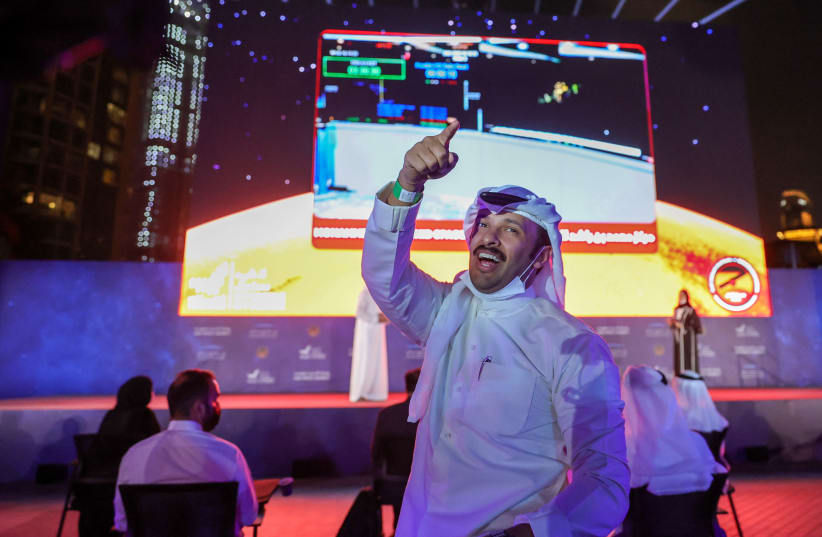The United Arab Emirates’ mission to Mars is a major achievement for the Gulf country and comes seven months after the country launched its first interplanetary mission.
The Hope spacecraft made its way to Mars amid important developments in the region. The Abraham Accords were announced and signed, and more than 100,000 Israelis traveled to Dubai. The UAE and Israel have become leaders in vaccinating their publics. Both countries also face challenges ahead, but in general they represent leading technology sectors in the region.
Back in July the Hope spacecraft took off at dawn from Japan and made its way to Mars. It was reported at the time that the concept dated back to 2014 and was intended to inspire a new generation while celebrating the country’s 50th anniversary. This was a big deal for the UAE, the Gulf and the region. Yousef al-Otaiba, the UAE ambassador to the US, praised the effort last year. He harkened back to the years of hard work and dedication it took.
Israel’s SpaceIL successfully launched the Beresheet spacecraft in February 2019 but failed when it landed on the moon in August 2019. Israel will try again. Israel is a leader in putting satellites into space, and the UAE is now the fifth country to reach Mars. Both countries are now major space powers. China and America’s NASA also have spacecraft on the way to Mars this year.
Dubai’s Burj Khalifa, the giant skyscraper, lit up in celebration when it was announced the mission was successful on Tuesday evening. The team members behind the mission have an average age of 27, and the team is 35% women, CNN reported.
Meanwhile, in Israel the satellite program also showcases Israel’s abilities. The Ofek launch in 1988 made Israel the eighth country in the world with a launch capability. Ofek-16 was launched in July 2020 from Palmahim.
That Israel and the UAE both had important milestones last year points to how important the current relations are. Israel and the UAE have many shared interests, whether it is a shared regional outlook about threats and instability, or the fact that both countries are close partners of the US. Both countries are also pioneering technology products, whether in fintech or food tech or other sectors, many of which have been on display, or will be soon, in joint ventures and exhibitions in the UAE which Israelis are taking part in.
For instance, Israeli companies flocked to the GITEX trade show last year and hope to be at IDEX in Abu Dhabi this month and also GISEC this summer.
The importance of the Mars mission is also an attempt to illustrate how the UAE is building and accomplishing things, while other countries in the region face sectarian conflicts and war.
For instance, in Lebanon an important critic of Hezbollah named Lokman Slim was recently assassinated. Turkey has been supporting extremists in northern Syria, and Iran is fanning extremists such as Hezbollah and the Houthis. The slogans and behavior of these terrorist groups, militias and mafias are all basically the same. They don’t build universities or launch rockets into space. All they pioneer is more dangerous military rockets.
Unsurprisingly, in response, Israel has created a multilayered air defense system which is now a marvel of the world.
All of those Israeli investments could have been plowed into more space missions and education, if it were not for Iran’s multiple threats. However the overall lesson is that Israel has succeeded in not only defending itself but pioneering technology.
The UAE also balances its investments in defense with missions to Mars. For instance, it is seeking more munitions, F-35s and drones from the US.
Israel also looks to be moving forward on new warplane and helicopter deals with the United States. In the end these sophisticated weapons are defensive in nature.
The new US administration has sought to reduce conflict in the region by supporting Riyadh’s self-defense but not its war in Yemen.
What does that have to do with Mars? Ostensibly, not much, because space is supposed to be a place of hope and peace, as the UAE’s spacecraft notes.
However, the wider picture is that the Middle East’s most successful pioneering states when it comes to advanced technology and space are Israel and the UAE.
They are the ones offering a greater message of hope for future generations than the sectarian extremism flowing from Tehran and Ankara.
